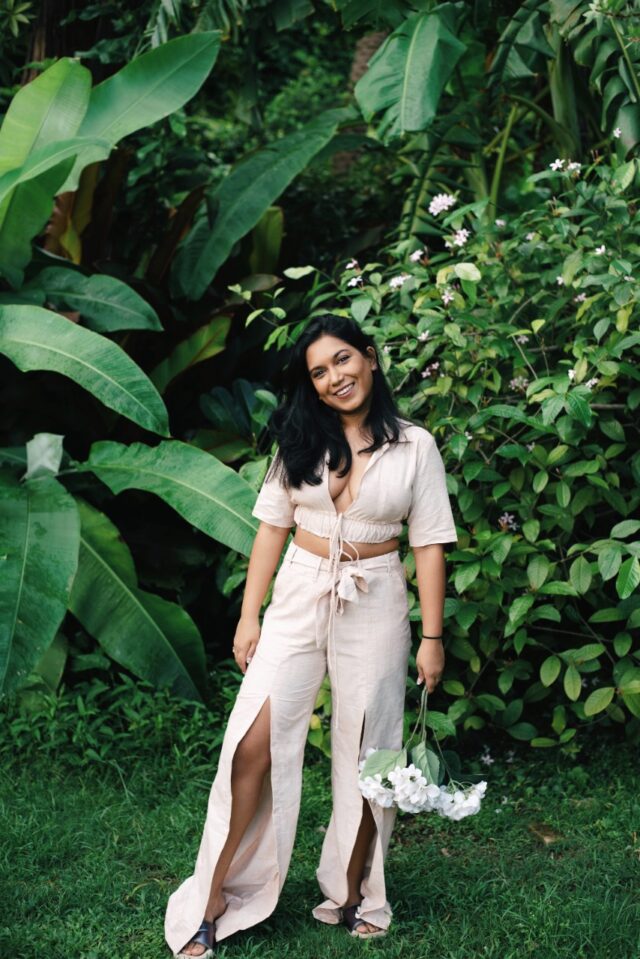The fashion industry is one of the largest growing industries in the world. The last decade has seen an increase in the number of fast fashion brands, negatively impacting our environment and society. Consumers worldwide are forgoing fast fashion for sustainable brands.
Goados is an Indian brand focused on creating sustainable apparel using natural indigenous material like Khadi with an emphasis on the continued sustenance of traditional Indian crafts and techniques.
We got in touch with Sanah Agrawal, founder of Goados to get more information on the brand, how they work, and their goals.
Talking about the inception of Goados, Sanah shares, “We began working on the brand in January 2021 but due to the second wave of Covid, we had to postpone the launch to September. We intend to transform people’s behaviour from purchasing fast fashion to ethical fashion by substituting materials like polyester, nylon, and other synthetic fibres with permeable natural fabrics that last longer and are good for your skin.”
“Prior to Goados, I worked in the development sector, working at the community level in areas like education, sanitation, and hygiene. I wanted to do something to support the resurgence of Indian craftspeople and traditions that have existed over many generations. Our organisation’s aim is to promote sustainability, and it has two pillars. The two pillars of sustainability are environment and the continuation of India’s traditional arts and crafts.”
“We want to promote the Indian arts and crafts, which have been handed down for aeons and are considerably older than the society to which we belong today. The fact that millennials and gen z’s prefer wearing novel synthetic clothing over traditional hand-woven fabrics, unless it’s a festival, is causing these crafts to slowly lose some of their relevance. Our goal is to alter their perception of these textiles and techniques since, in my opinion, they have umpteen modern applications both in India and worldwide. We think that behaviour change starts early and if they start using these sustainable items and practices earlier on in life, then they and their generation as a whole will develop into better consumers overall.”
Sanah further talks about the growing popularity of the sustainable fashion landscape and says, “Given that so many brands are currently taking on several initiatives to move towards sustainability, I find the Indian market for sustainable fashion to be really exciting. My impression is that this sector is burgeoning and has a promising future. I don’t believe that sustainable fashion has to be a niche or that one needs to pay a high price to have a sustainable wardrobe, we are attempting to make these items accessible and creating collections with affordable pricing. Although it is heavier on the pocket, I believe it is a small amount to avoid the drawbacks and burdens of fast fashion.”
“We want to make sustainability more exciting to our consumers with our design centric approach. We forecast the latest trends and colours with a strong brand identity infused in all our communication. We want our consumers to be good consumers not just when it comes to fashion but towards all aspects of life. We want to reassure them that sustainability need not be monotonous or boring.”
“In fact, I think Khadi is having a resurgence and resurrection as a fabric with more brands opting to incorporate the material into their collections. We will also be targeting some indigenous silk and dyeing techniques like batik and kantha embroidery for our next collection and try to make it more contemporary and a part of everyday wear. We’ve used handwoven ikkat in the past to an amazing response and we would slowly like to expand the regions and the communities that we can impact. My major objective is to protect these arts and crafts and to support the craftspeople so they can continue to practise these age-old techniques.”
Read more:
































